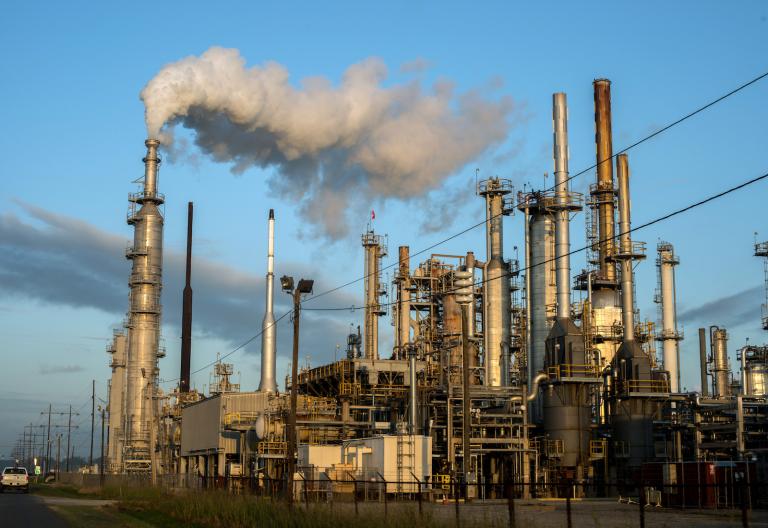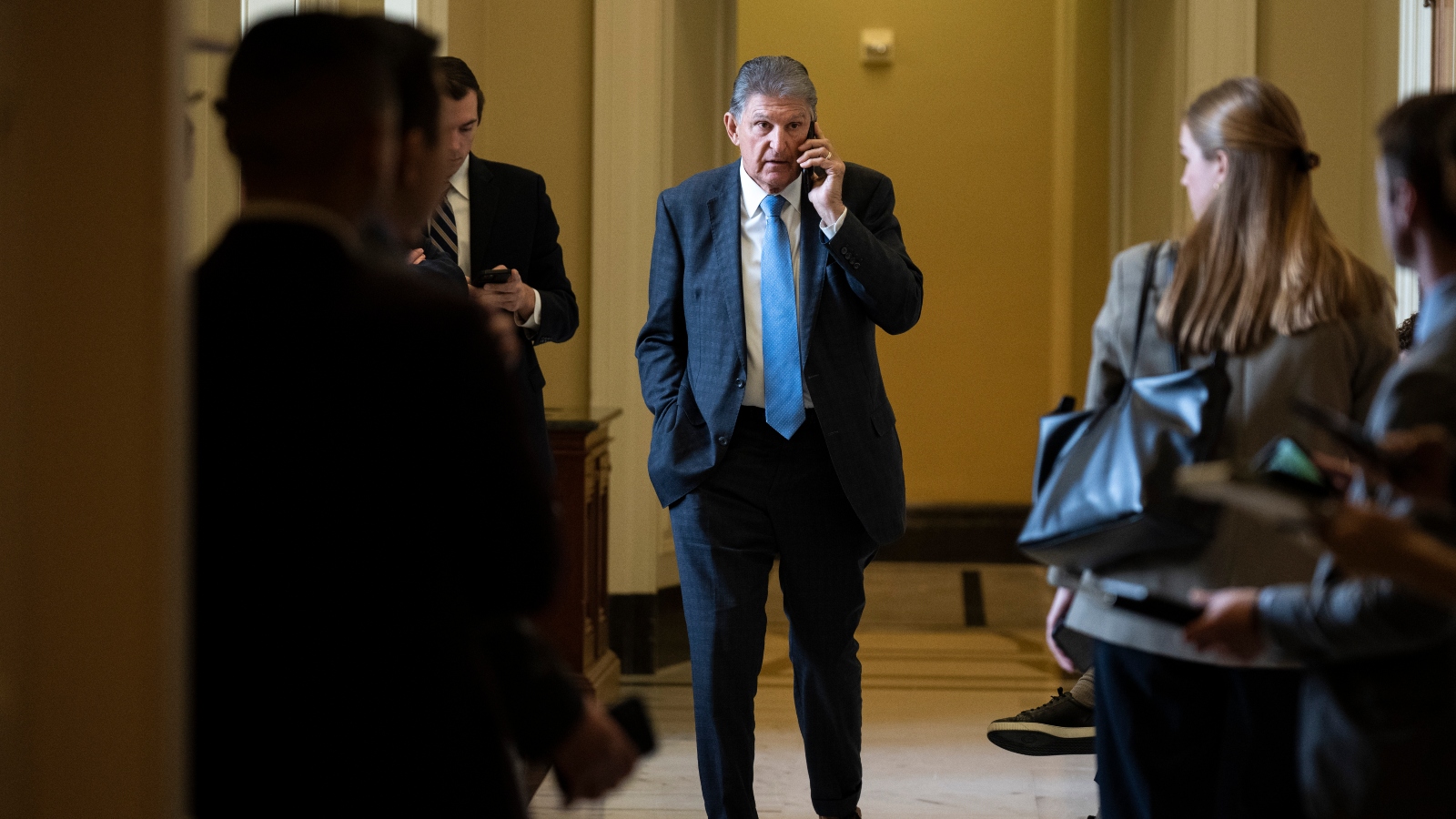When he voted to pass historic climate legislation this summer, West Virginia senator Joe Manchin demanded something in return: a subsequent bill that would reform and expedite the federal permitting process for big energy projects. Manchin’s view is that federal red tape constrains fossil fuels and renewables alike, preventing the U.S. from producing cheap domestic energy.
Now, after one failed attempt to pass the followup bill, leading Democrats in Congress are maneuvering to pass Manchin’s energy permitting legislation in the coming weeks by attaching it to a critical annual defense spending bill, sources told E&E News and the Washington Post.
The maneuver represents a last-ditch effort by Democratic leaders to force through the West Virginia senator’s controversial energy legislation before they lose unified control of Congress next month. If this effort fails, any future permitting bill will have to clear a Republican-controlled House of Representatives. Such a bill would likely look a lot different than what Manchin and his fellow Democrats intended, focusing more on supporting fossil fuels less on hastening the transition to clean energy.
Manchin’s bill in its current form would speed up federal environmental reviews for many large infrastructure projects, making it easier to ramp up production of fossil fuels as well as green energy. The permitting process for these projects often takes years to complete, leaving projects stuck in regulatory limbo.
The bill would also streamline the process for approving new electrical transmission wires, which are essential for moving renewable wind and solar energy from the rural areas where they’re often produced to population centers that need power. New transmission lines, however, are often derailed by disputes between states. The legislation also contains a provision that would order the completion of the Mountain Valley Pipeline, a natural gas pipeline that runs through Manchin’s state and has long been one of the senator’s top priorities.
The legislation has been divisive among climate advocates. Many policy experts and renewable-energy boosters have praised the language around transmission lines, arguing that more transmission infrastructure is necessary to decarbonize the power sector. One estimate from the research firm Rhodium Group found that failing to build new transmission lines could jeopardize up to a quarter of the emissions reductions promised by the landmark Inflation Reduction Act that passed in August. Representative Sean Casten, a Democrat representing Illinois, told Grist last month that “the good outweighs the bad.” (Prior to running for office, Casten occasionally wrote blog posts for Grist between 2007 and 2014.)
But progressives and environmental justice advocates have said the attempt to hasten environmental reviews will harm ecosystems and vulnerable communities who must contend with major projects near their homes. John Beard, an activist in Port Arthur, Texas, called it a “climate catastrophe.”
Earlier efforts to pass Manchin’s permitting reform stalled out earlier this year. After Manchin and Senate Majority Chuck Schumer struggled to consolidate support for the bill, they attached it to a stopgap government funding package in September, only to remove it again after dozens of progressives in the House and Senate opposed that maneuver.
Now the party has one more chance to move the bill forward, again by stitching it to a must-pass funding package. The National Defense Authorization Act is an annual spending bill that allocates funding to the military, and it typically reaches the president’s desk with bipartisan support. If this year’s version doesn’t pass by December 16, the federal government will be forced to shut down many of its normal operations.
Democrats are betting that Republicans who oppose Manchin’s permitting reform effort will vote for the legislation because they don’t want to vote against defense spending. Indeed, since many progressives will likely oppose the defense bill, Manchin and the other Democratic leaders will need to pick up Republicans in the House and the Senate in order to get it to President Biden’s desk.
Manchin has spent the month since the midterm elections holding a series of sideline talks with his Republican colleagues in an attempt to reach a bipartisan permitting reform deal, but the talks have yet to bear any fruit. His fellow senator from West Virginia, Republican Shelley Moore Capito, called it a “heavy lift” last week.
If the Democrats can’t pass permitting before a new Congress takes office next month, they will have to work with Republicans to craft a bipartisan version of the legislation. Kevin McCarthy, the top House Republican who will likely serve as the next Speaker of the House, has said that boosting what he calls “energy independence” will be one of the top agenda items for his new majority.
But McCarthy’s ideas about how to boost energy production are different from Manchin’s. A competitor permitting bill drafted by Capito and her Republican colleagues omitted the renewable-friendly transmission text and included other provisions that would weaken safeguards for federal lands and waters. The official Republican energy platform, meanwhile, proposes to auction off more federal land for oil drilling, speed up mining for critical minerals, and restore the Keystone XL Pipeline, which Biden canceled shortly after taking office last year.



